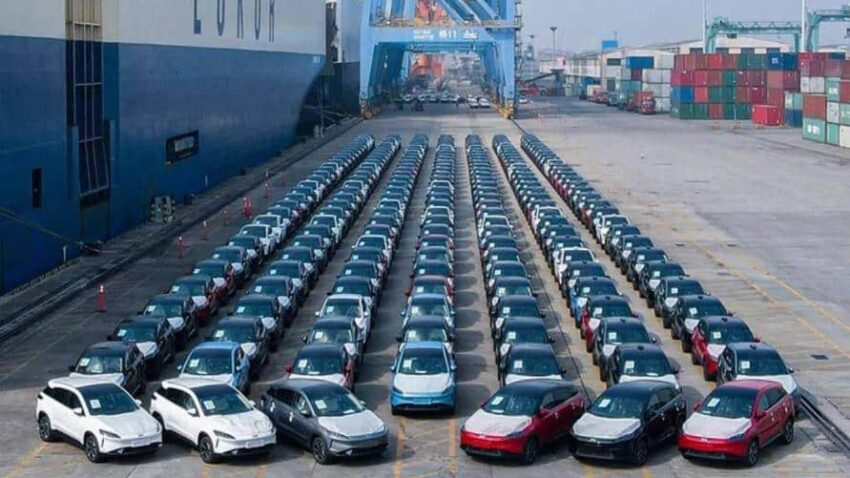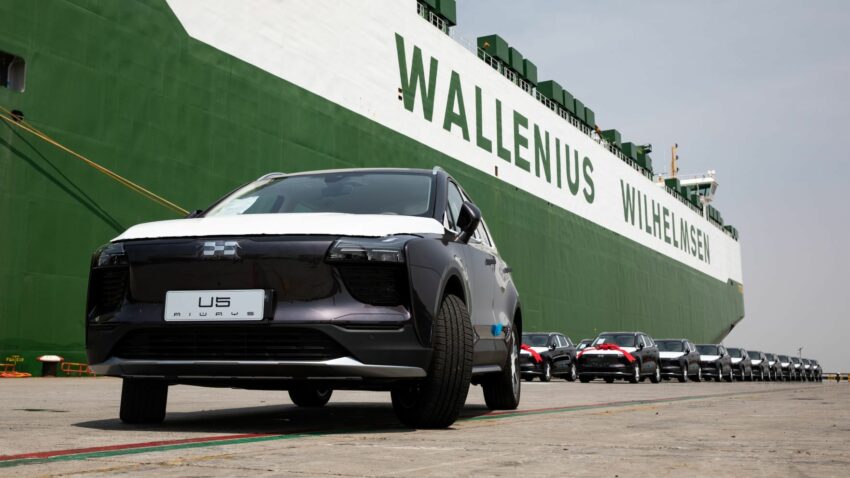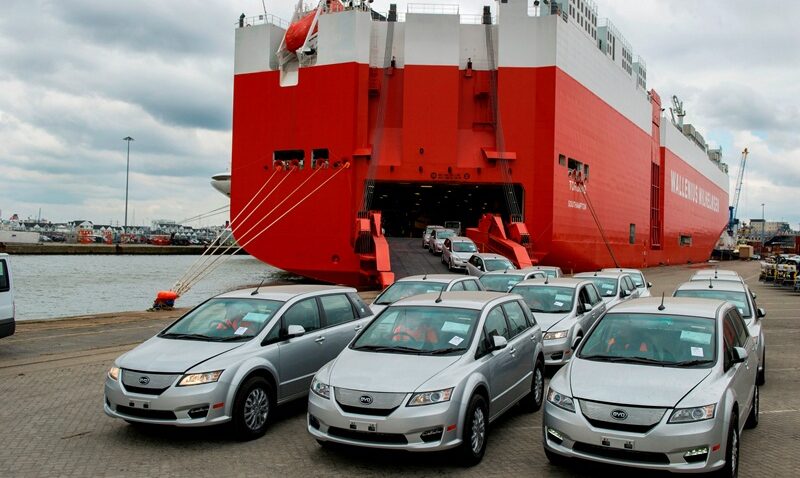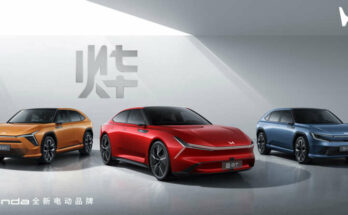The opening of Tesla’s Shanghai factory in 2019 was a breakthrough for electric vehicles and for overseas carmakers: it was the first wholly foreign-owned plant in China– the world’s largest car market. But it also marked the start of an even bigger trend, which promises to upend the structure of global manufacturing, bring a new wave of de-industrialization to Europe and trigger trade tensions of an intensity to match the 1980s. That trend is the emergence of China as a car exporter.
Related: Electric Vehicle Adoption Projection Between 2022 and 2025
As Gregor Sebastian and François Chimits of the Mercator Institute for China Studies documented recently, China’s car exports are taking off, many of them are electric vehicles and most are going to Europe. From almost nothing a few years ago, China exported half a million electric vehicles in 2021, and its market share in Europe was second only to Germany’s. As the car market goes electric, Europe could quickly find itself running a trade deficit with China in automobiles.

That would be a dramatic shift in market structure. Europe and Japan now buy consumer goods from China, and send luxury cars — or their most vital components — in the other direction. The badges on Chinese vehicles arriving in Europe do not necessarily reveal their origins. About half of them are Teslas from Shanghai; other marques include Dacia, Polestar and BMW. Tesla has recently opened a European plant in Germany, but the production decisions of other makers suggest a meaningful cost advantage for China.
Related: IM L7- Another Premium Electric Sedan from China
If batteries replace combustion engines, and China dominates car production, the disruption will be immense. Automobile manufacturing underpins the prosperity of Europe and Japan. Companies such as Toyota and Volkswagen, plus their supply chains, employ millions of people in stable, skilled manufacturing jobs. They underpin national current account surpluses. A shift in the location of car manufacturing would have an even greater impact than the past migrations of steel, electronics or shipbuilding.

Sebastian and Chimits argue that Europe should already be retaliating against Chinese industrial policies, which provide cheap capital to carmakers and tie electric vehicle subsidies for Chinese consumers to local production. Meanwhile, Chinese-made electric vehicles are eligible for EU subsidies to European consumers and they attract a tariff of just 10 per cent compared with the 27.5% levied by the US.
Related: Voyah Free EV is Entering Europe
Europe should indeed demand fair and reciprocal treatment. Protection, however, is no substitute for competitiveness. Even if the US and Europe wall off their car markets with high tariffs, the prize in global automotive trade is to produce for the many wealthy countries — from Norway to Australia and the Middle East — that lack the scale to support a car industry of their own.

For Japanese and European carmakers, the challenge is that while electric vehicles may be high-tech, they are not complex. Internal combustion engines were at the heart of 20th-century industrial prowess. A vehicle built around one is a complex assembly of crankshaft, pistons, fuel pumps, turbochargers and myriad other components, each of which must be mastered and integrated. Even after 150 years of development it is still a difficult task, calling for deep technical expertise and a vast network of suppliers, rather than access to the lowest possible labor costs.
Related: Are Electric Cars Viable for Pakistani Consumers?
The drivetrain of an electric vehicle, by comparison, is extraordinarily simple: a battery, a motor and not much else. Production of the crucial component, the battery, is a business of huge scale and thin margins; the economics are similar to another green technology, the solar panel. Assembly of electric vehicles needs some of the skills of traditional car making, but bears comparison as well to other electrical goods. Solar panels and consumer electronics are industries where Chinese manufacturing dominates on cost.

You can still buy a Philips or a Sony TV, but they are no longer made in Japan or the Netherlands. Something similar may happen to famous automotive names. Furthermore, the value in electric vehicles may migrate to the software that runs them, as it has done in consumer electronics. In that case, Europe may find itself in the familiar, depressing position of buying Chinese-made products that run American software.
Related: Are Hybrid Cars a Mid-Term Solution Before Launching EVs in Pakistan?
However in any version of this future there will be a traumatic reshaping of the global economy. The arrival of Japanese cars on global markets caused something close to a trade war in the 1980s. If China starts to absorb the global auto industry, the trade tensions of the 2020s will be a whole lot worse.
Source: Financial Times

A computer animation professional with over 23 years of industry experience having served in leading organizations, TV channels & production facilities in Pakistan. An avid car enthusiast and petrolhead with an affection to deliver quality content to help shape opinions. Formerly written for PakWheels as well as major publications including Dawn. Founder of CarSpiritPK.com




